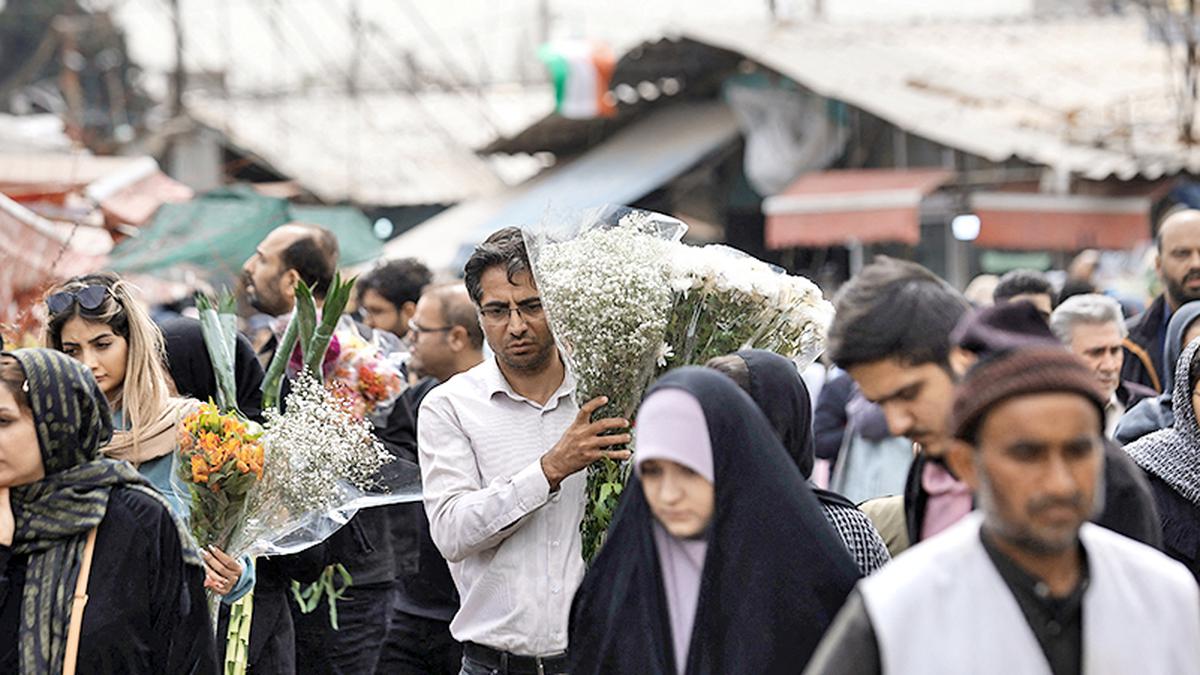Iranian people walk at a flower market, ahead of Nowruz, the Iranian New Year, in Tehran.
| Photo Credit: Reuters
Millions of Iranians will travel to be with their families for Nowruz, the Persian New Year, on March 20 but economic troubles in the sanctions-hit country are weighing on the festivities.
Iranians will celebrate the start of the year 1403 at exactly 26 seconds past 6:36 a.m. (0406 GMT) on March 20, matching the astronomical time of the spring equinox.
Globally, some 300 million people will wish each other Nowruz mobarak (Happy New Year) including in Iran, Afghanistan, Kazakhstan and among Kurds in Turkey, Iraq, Syria and elsewhere. “It’s the most important holiday of the year, the one where we forget our problems to get together with our loved ones and dream of a better year,” said Marjan, a young woman from Tehran whodeclined to give her full name.
Celebrated for 3,000 years, Nowruz marks a two-week break when Iranians travel within the country or, for the more fortunate, abroad. Yet many have plans for diminished feasts this year.
“Food products are far too expensive because of inflation,” Afshar, a 44-year-old accountant, said at the Tajrish bazaar in northern Tehran.
Annual inflation officially stands at 44%, according to local media, after hitting 46% last year.
“I bought meat at 7,00,000 toman (around $12) per kilo, but I only earn 9.8 million ($160) per month after a 30-year career,” said a 68-year-old resident of Tehran who did not wish to be named.
Last Nowruz, Iran’s supreme leader Ali Khamenei acknowledged that Iranians felt “bitterness” due to “high prices, particularly of food and necessities”. He then tasked the government with measures to implement “inflation control”. Authorities in Iran have blamed Western economic sanctions for the surge in prices.
